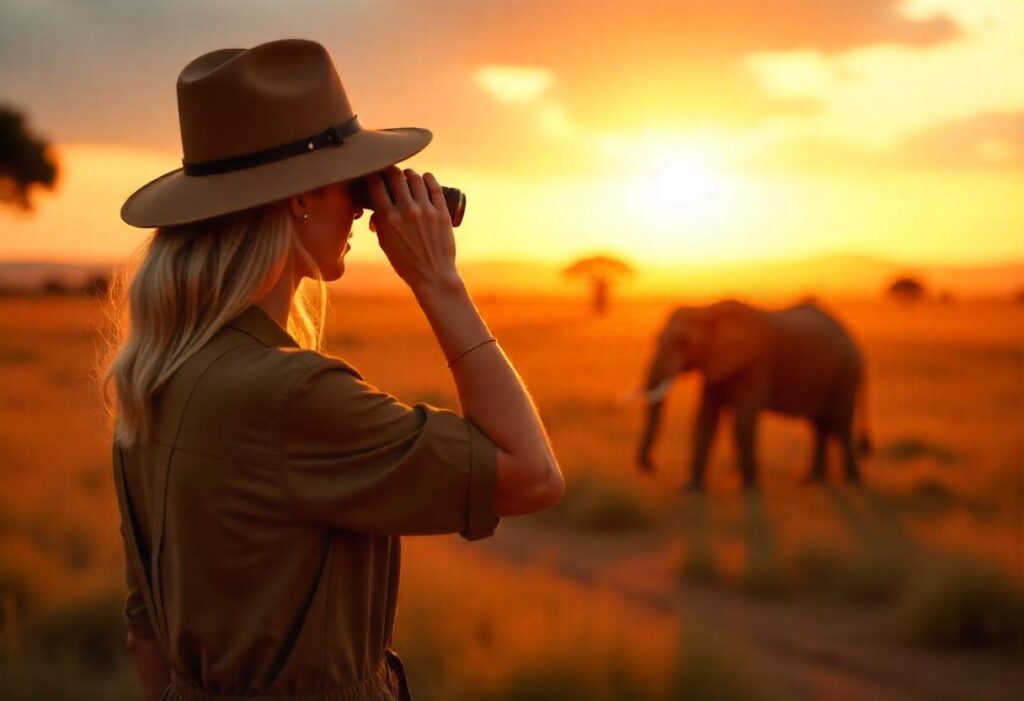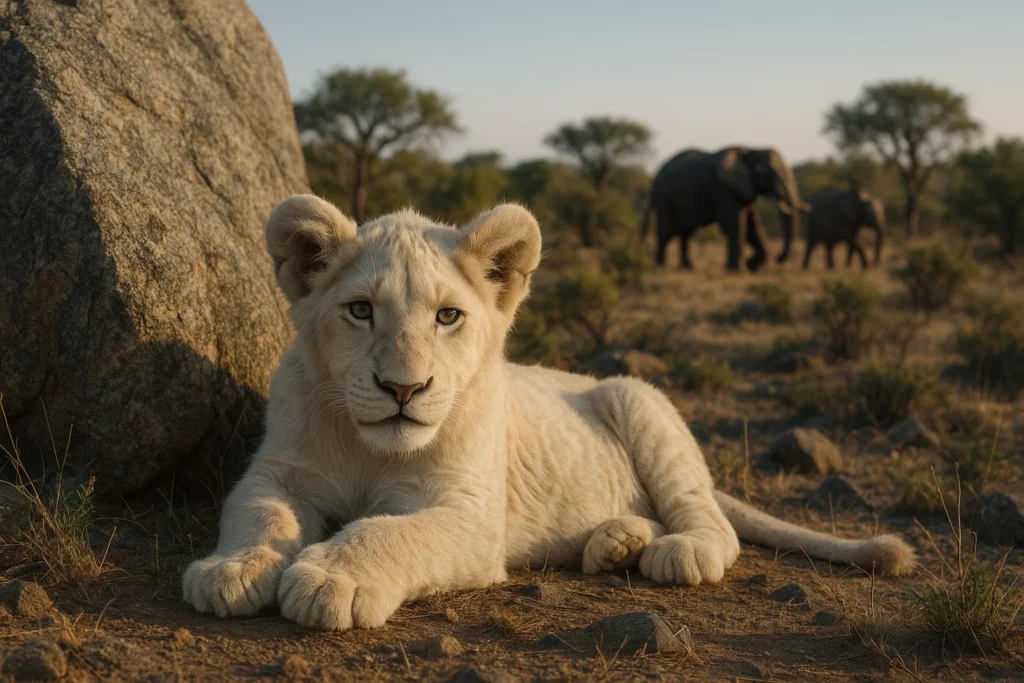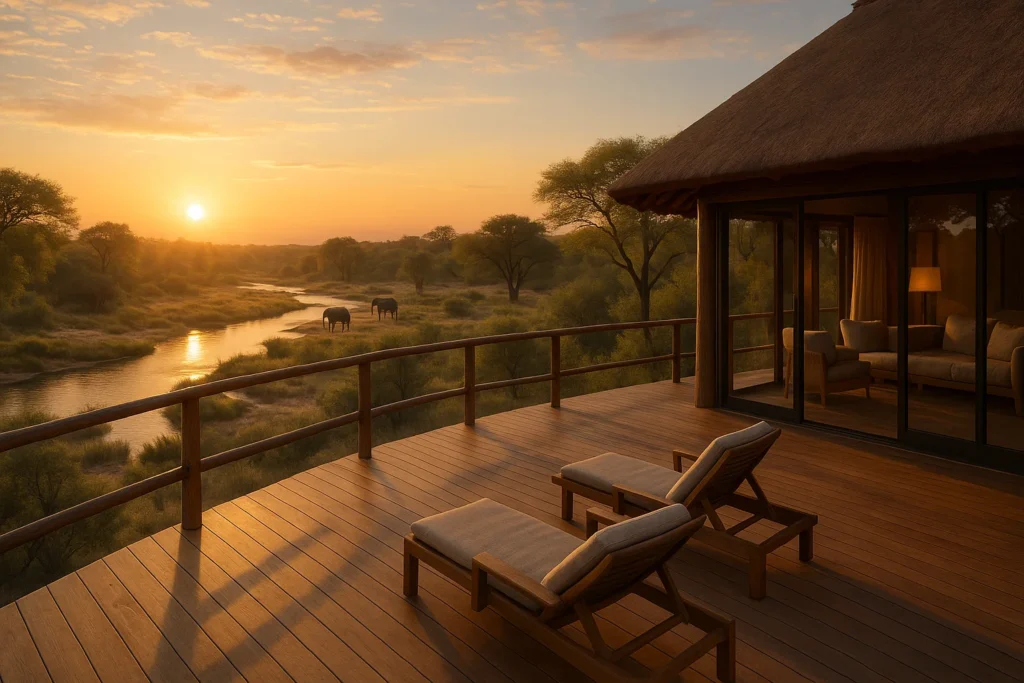When planning a safari in Africa, one of the first questions you’ll face is: should I go luxury or budget? Both styles offer remarkable wildlife encounters, but the overall experience—comfort, exclusivity, cost, and logistics—can vary significantly. In this guide, we’ll compare the two to help you decide which safari type best suits your travel goals.
What makes a safari “luxury”?
Accommodation and amenities
Luxury safaris typically include high-end lodges or tented camps with spacious rooms, ensuite bathrooms, fine dining, and often extras like pools or spa services. These camps are usually located in private reserves or exclusive areas within national parks.
Service and personalization
Expect private guides, tailored itineraries, and exceptional attention to detail. Your days are often flexible, with fewer guests per game drive vehicle and premium transportation like chartered bush flights.
Exclusivity and comfort
Luxury safaris emphasize comfort, privacy, and seamless logistics—ideal for honeymooners, families seeking stress-free travel, or those celebrating special occasions.
What to expect on a budget safari
Cost-effective adventure
Budget safaris are more accessible for travelers looking to experience Africa without spending thousands. These trips may include group overland tours, self-drives, or lodge-to-lodge transfers with shared services.
Basic but functional lodging
Accommodation ranges from hostels and guesthouses to camping or basic safari tents. You might share bathrooms or dine at communal tables, but the essentials—meals, beds, guides—are included.
Authentic and social experiences
Budget safaris often foster a sense of camaraderie with fellow travelers and can be just as rich in wildlife encounters. They’re perfect for backpackers, students, or anyone happy to trade comfort for immersion.
Cost breakdown: luxury vs. budget
| Safari Style | Daily Cost Estimate | Inclusions |
|---|---|---|
| Luxury | $600 – $2,000+ | Private guides, flights, gourmet food, premium lodging |
| Mid-range | $300 – $600 | Shared drives, quality lodges, full board |
| Budget | $100 – $300 | Group tours, basic lodging or camping, local transport |
Note: Prices vary by country, season, and type of safari.
How to choose the right safari for you
Consider your priorities
- Comfort vs. immersion: Are you looking to unwind in luxury or fully immerse yourself in nature?
- Time vs. budget: Luxury safaris can deliver more in fewer days. Budget safaris allow for extended trips at a lower cost.
- Exclusivity vs. sociability: Private guides vs. group camaraderie—what’s more important to your experience?
Destination matters
Some countries lend themselves more easily to one style over another. For example:
- Luxury-friendly: Botswana, Tanzania (private reserves), Namibia
- Budget-accessible: South Africa, Kenya, Uganda
Pros and cons at a glance
| Safari Type | Pros | Cons |
|---|---|---|
| Luxury | High comfort, personalized service, exclusivity | Expensive, not ideal for long stays |
| Budget | Affordable, authentic, longer stays possible | Less comfort, larger groups, shared services |
Final thoughts
There’s no wrong choice—only what fits your travel style. A budget safari can be just as life-changing as a luxury one if expectations are managed. If you’re unsure, consider a hybrid safari: start with a few nights of comfort, then switch to a more affordable experience to extend your trip.
Frequently asked questions
Yes, many travelers combine luxury lodges with more budget-friendly options to balance cost and comfort. Tour operators can help tailor a mixed itinerary.
If you value privacy, gourmet food, and seamless logistics, luxury safaris are worth the investment—especially for short trips or special occasions.
Absolutely. Wildlife sightings depend more on location and timing than luxury. Many budget safaris explore top parks like Kruger, Serengeti, or Masai Mara.
Yes. Whether luxury or budget, guides and staff typically rely on tips. Amounts vary but plan to budget for this extra cost.
Kenya and South Africa are top picks for first-time visitors thanks to their affordability, accessibility, and well-developed safari infrastructure.






